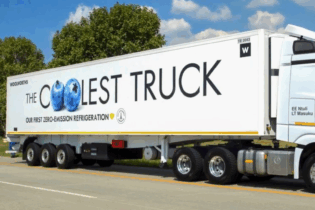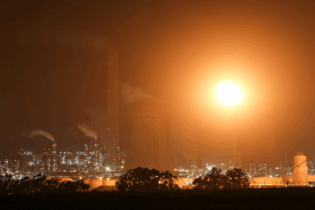
Nkoko Sekete, regional manager, Dr PD Sekete, founder and
Thabang Sekete, business development manager
This year, Buhle celebrates its 20th year. How did the company come about?
TS The company was founded in 1997 after medical general practitioner Dr PD Sekete realised that many of his patients in the townships of what was then the East Rand (now Ekurhuleni) were falling ill as a result of poor waste management services. This was and unfortunately continues to be the norm in many informal settlements. He decided that rather than working in a curative capacity, he could do more good by taking a preventative approach. After purchasing a couple of skip trucks and finding partners with skip waste management experience, Buhle Waste was formed. Soon after, the City of Ekurhuleni began supporting grassroots, black-owned companies and Buhle was awarded its first tender to collect general domestic waste door-to-door in township areas like Katlehong and Vosloorus. It also managed waste from a small number of mini disposal sites.What are Buhle’s current achievements and scope?
Today we have a national footprint, with about 72 trucks in operation. Our staff complement numbers more than 350 people and our collections are no longer limited to general domestic waste. Our main areas of operation are Gauteng, the Free State, Mpumalanga, Limpopo and the North West. We also have operations in KwaZulu-Natal and the Eastern Cape, and are currently in the process of establishing a Western Cape branch. While we do not have a branch in the Northern Cape, we operate in the area through smaller satellite offices. Buhle Waste’s services have grown to include chemical, hazardous and industrial waste, as well as waste from construction sites and manufacturers. In addition, we also offer industrial cleaning and hygiene services. However, we specialise in medical waste. With the founder having been a doctor, this was a natural evolution for the company.Through this specialisation, we have gained a number of notable clients, including the Provincial Departments of Health in Gauteng, the Free State, Mpumalanga and Limpopo.
To date, we have purchased an incinerator in Benoni and an advanced converter sited in Seshego, Limpopo.What are Buhle’s plans for the future?
We are working towards a vision where Buhle Waste will send zero waste to landfill by 2025. This will be achieved through the use of our converter’s neutraliser technology, which was developed in Italy. A normal incinerator releases toxins into the atmosphere, which poses challenges for environmental regulators like the Department of Environmental Affairs. The converter substantially mitigates risks to the health of surrounding communities and the environment, while also saving on water and energy use. It uses only five to six litres per 30-day cycle and demonstrates energy savings of about 30% compared to other technologies, including incineration, autoclaving and microwaving. Not only does this green technology reduce waste by about 70% in terms of volume and 60% in terms of weight, it can also be geared to convert waste to biogas. We are hoping to begin a pilot, towards the middle of next year, for turning the remaining waste into biofuel. This is an extremely exciting development for us and we are proud to have brought the technology to South Africa.| Buhle Waste |
|






